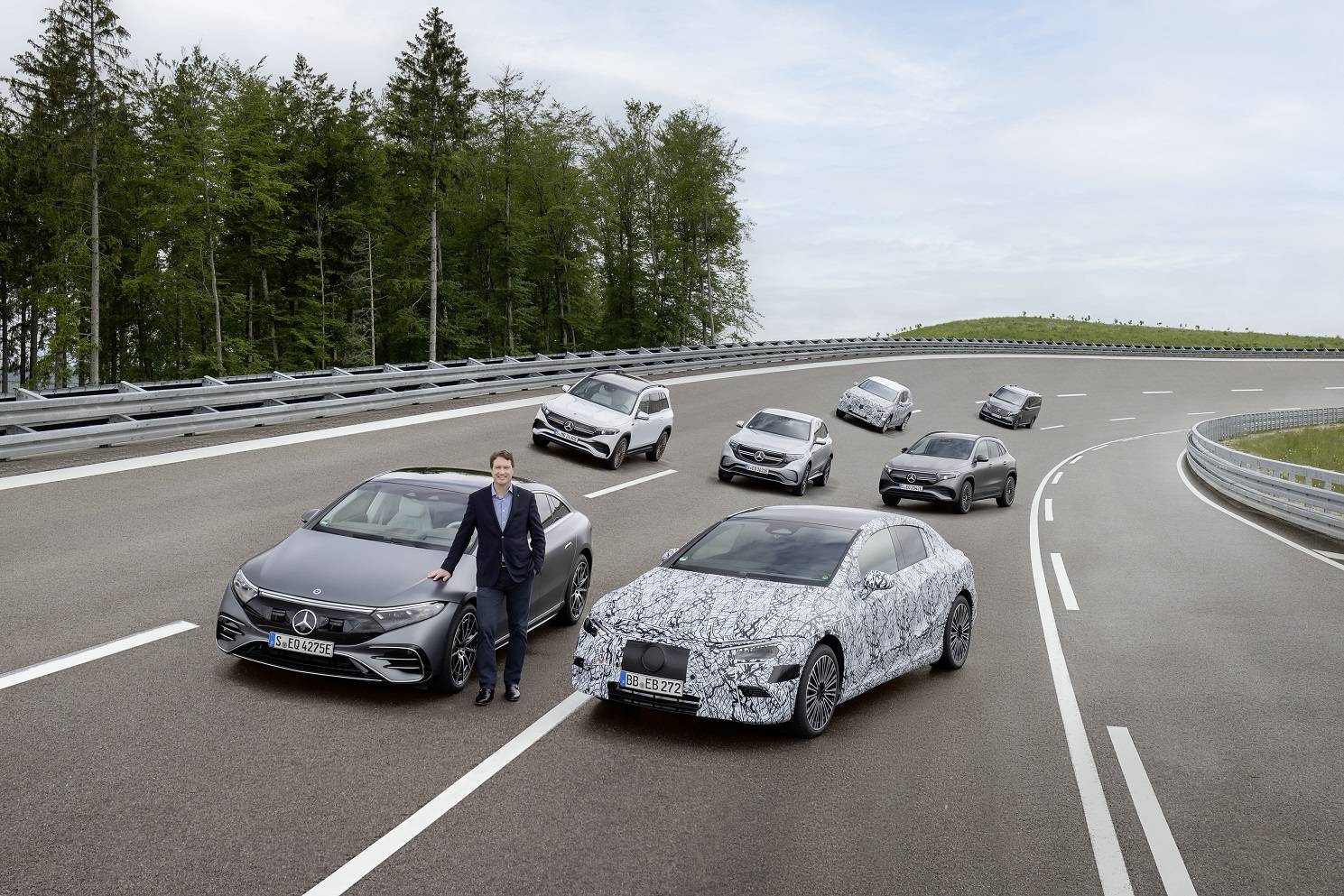
New Delhi: Mercedes-Benz is getting ready to go all electric by the end of the decade. Shifting from electric-first to electric-only, the world’s pre-eminent luxury car company is accelerating toward an emissions-free and software-driven future.
For this shift, Mercedes-Benz is unveiling a comprehensive plan which includes significantly accelerating R&D. Investments into battery electric vehicles between 2022 and 2030 will amount to over EUR 40 billion. Accelerating and advancing the EV portfolio plan will bring forward the tipping point for EV adoption, the company said in a release.
By 2022, Mercedes-Benz will have battery electric vehicles (BEV) in all segments the company serves. From 2025 onwards, all newly launched vehicle architectures will be electric-only and customers will be able to choose an all-electric alternative for every model the company makes. Mercedes-Benz intends to manage this accelerated transformation while sticking to its profitability targets, the release said.
“The EV shift is picking up speed – especially in the luxury segment, where Mercedes-Benz belongs. The tipping point is getting closer and we will be ready as markets switch to electric-only by the end of this decade. This step marks a profound reallocation of capital. By managing this faster transformation while safeguarding our profitability targets, we will ensure the enduring success of Mercedes-Benz. Thanks to our highly qualified and motivated workforce, I am convinced that we will be successful in this exciting new era,” Ola Källenius, CEO of Daimler AG and Mercedes-Benz AG, said.
The EV shift is picking up speed – especially in the luxury segment, where Mercedes-Benz belongs. The tipping point is getting closer and we will be ready as markets switch to electric-only by the end of this decade.Ola Källenius, CEO of Daimler AG and Mercedes-Benz AG
Mercedes-Benz will deepen the level of vertical integration in manufacturing and development, and in-source electric drive technology. This step includes the acquisition of UK based electric motor company YASA. With this deal, Mercedes-Benz gains access to unique axial flux motor technology and expertise to develop next generation ultra-high performance motors. China is expected to play a key role in accelerating the Mercedes-Benz electrification strategy.Battery Manufacturing
With regard to cell manufacturing, Mercedes-Benz intends to team up with new European partners to develop and efficiently produce future cells and modules, a step which ensures that Europe remains at the heart of the auto industry even in an electric era.
By continuously integrating the most advanced battery cell technology in cars and vans, Mercedes-Benz aims to increase range during the production lifecycle of a model. With the next battery generation, Mercedes-Benz will work with partners like SilaNano to further increase energy density by using silicon- carbon composite in the anode. This will allow for unprecedented range and even shorter charging times. When it comes to solid-state technology, Mercedes-Benz is in talks with partners to develop batteries with even higher energy density and safety, the release said.
Charging
Mercedes-Benz is also working on setting new standards in charging: Plug & Charge will go live with the market launch of the EQS later this year. Mercedes me Charge is already one of the world’s largest charging networks and currently comprises more than 530,000 AC and DC charging points worldwide. Furthermore, Mercedes-Benz is working with Shell on expanding the charging network. Customers will get enhanced access to Shell’s Recharge network consisting of over 30.000 charge points by 2025 in Europe, China, and North America – including over 10.000 high-power chargers globally.
Production Plan
Mercedes-Benz is currently preparing its global production network for electric-only output with the pace of the ramp-up designed to follow market demand. As soon as next year, eight Mercedes-Benz electric vehicles will be produced at seven locations on three continents. Furthermore all passenger car and battery assembly sites run by Mercedes-Benz AG will switch to carbon neutral production by 2022.
Our main duty in this transformation is to convince customers to make the switch with compelling products. For Mercedes-Benz, the trailblazing EQS flagship is only the beginning of this new eraOla Källenius, CEO of Daimler AG and Mercedes-Benz AG
To enhance manufacturing efficiency, Mercedes-Benz is joining forces with GROB, a German global leader in highly innovative battery production and automation systems, strengthening its battery production capacity and know-how.
People plan
Mercedes-Benz will continue the transformation of its workforce, making use of extensive re-skilling schemes, early retirement as well as buyouts. TechAcademies will be offering colleagues training for future-oriented qualifications. In 2020 alone, about 20,000 employees in Germany were trained in aspects of e-mobility. To deliver on plans for developing the MB.OS operating system, 3,000 new software engineering jobs will be created worldwide.
Financial plan
An important lever is to increase net revenue per unit by raising the proportion of high-end electric vehicles such as Mercedes-Maybach and Mercedes-AMG models, while at the same time taking more direct control over pricing and sales. Rising revenue from digital services will further support results. Mercedes is also working on further reducing variable and fixed costs and cutting the capex share of investments.
The proportion of battery costs within the vehicle is expected to fall significantly. Capital allocation is moving from EV-first to EV-only. Investments into combustion engines and plug-in hybrid technologies will drop by 80% between 2019 and 2026. On this basis, Mercedes-Benz projects company margins in a BEV world which are similar to those in the ICE era.
“Our main duty in this transformation is to convince customers to make the switch with compelling products. For Mercedes-Benz, the trailblazing EQS flagship is only the beginning of this new era,” Källenius added.
Read more:















